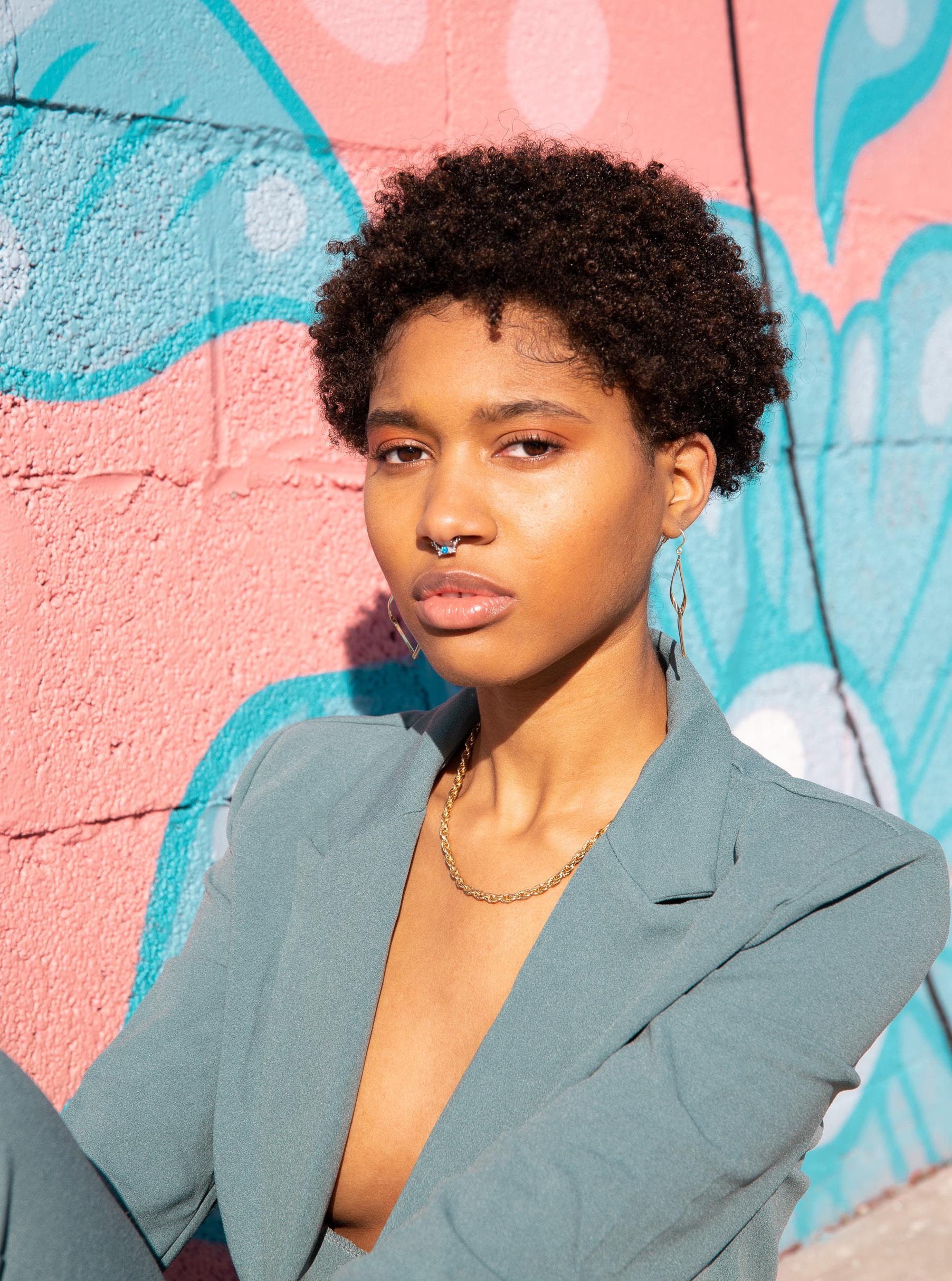
3 minute read
TRANS HEALTH NATURAL HAIR: PERSONAL
HAIR
Health & Beauty - Natural Hair
Advertisement
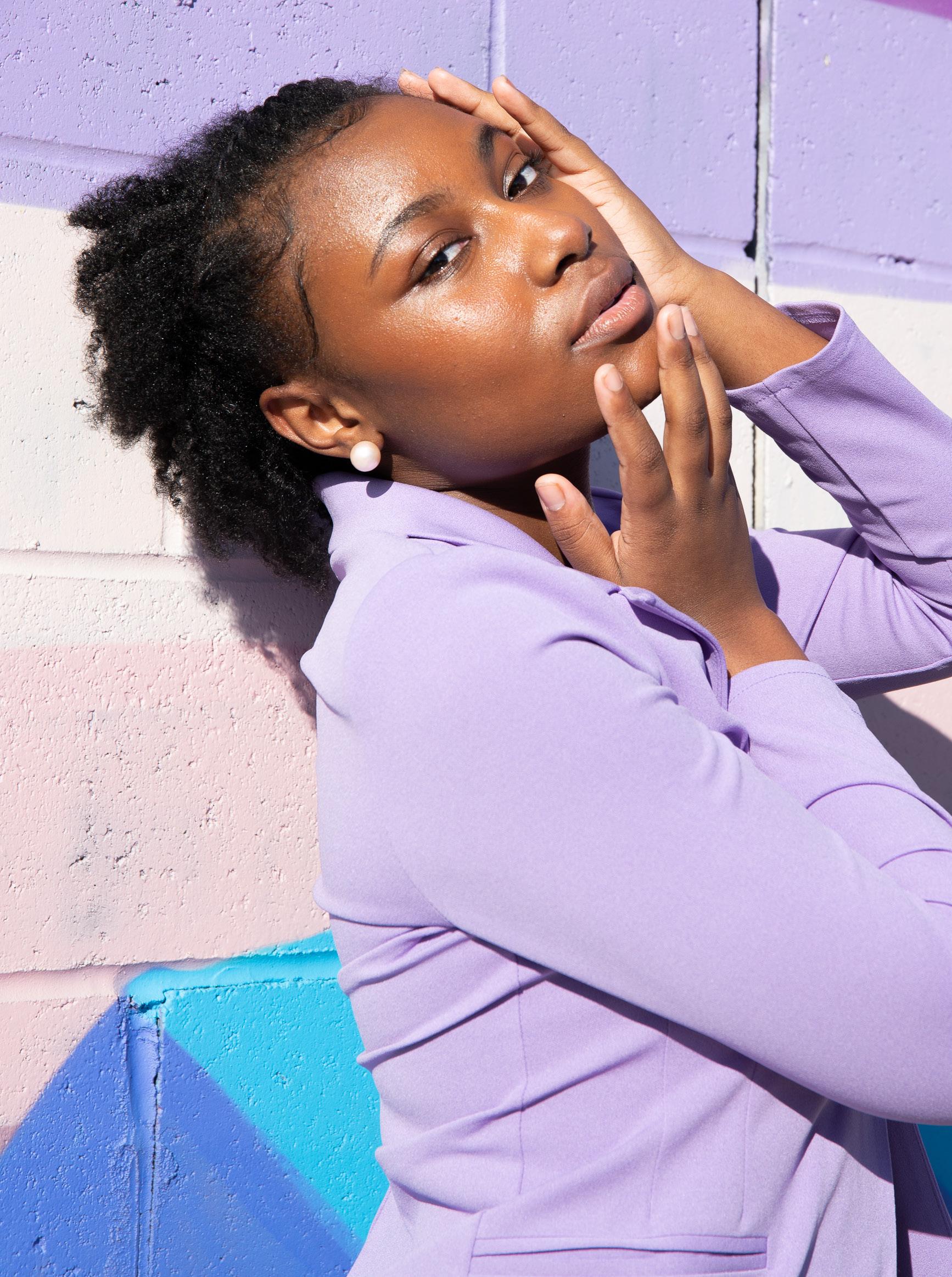
PERSONAL & POLITICAL IDENTITY

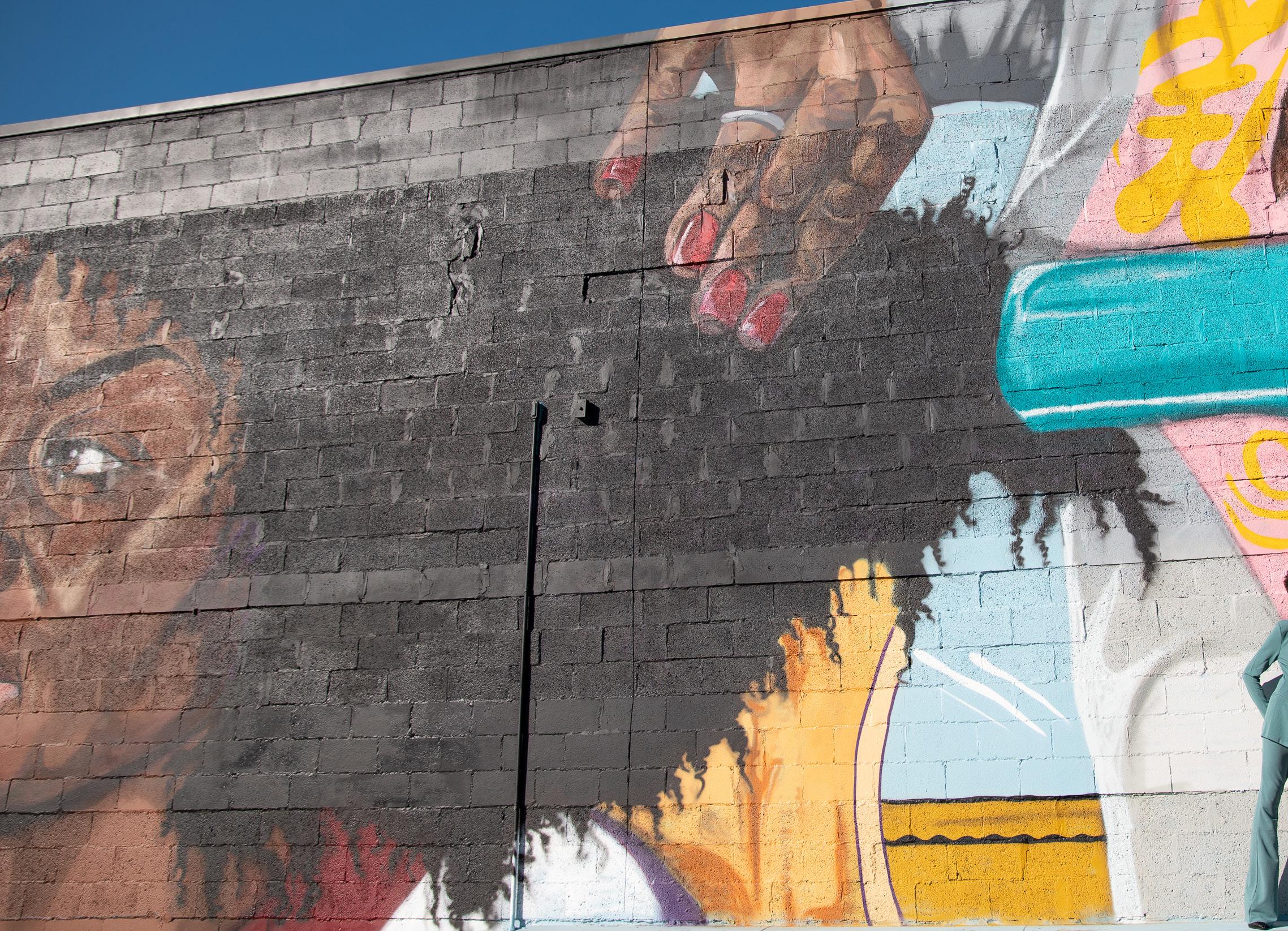

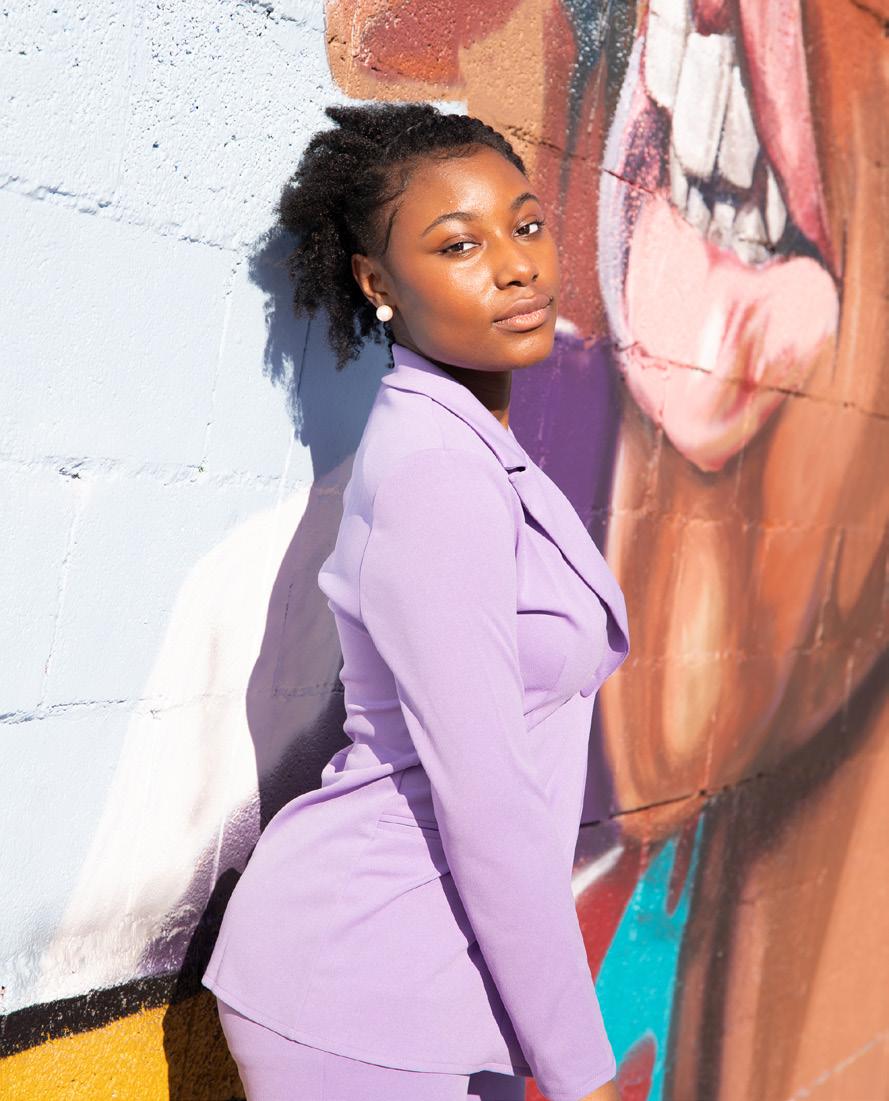
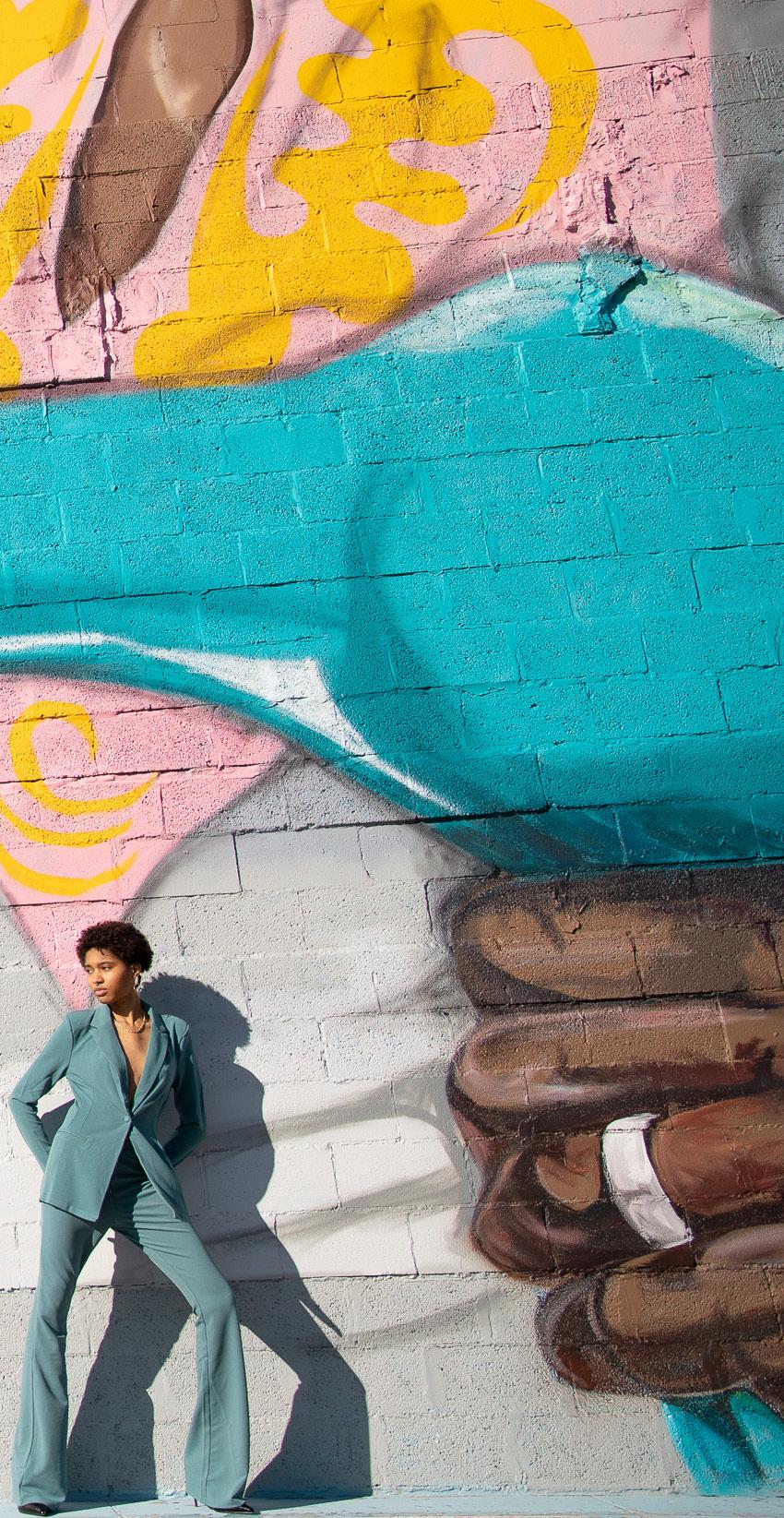
WORDS: NANA KRAH STYLE: NANA KRAH, MARIA VITALE & KATHRYN REMY PHOTO: JILLIAN FELTON GLAM: KORY HAMBLIN & MICHELLE RATCHFORD
Natural hair is a major reflection of self-expression and individuality both currently and throughout Black history. The natural hair movement began in the 1960s as a way for Black individuals to embrace their naturally-textured hair. Since then, several powerful movements and statements have been made to showcase natural hairstyles and advocate for change in traditional beauty standards. The natural hair movement continues to make great progress, but natural hair is nowhere near as embraced or accepted as it should be. Natural hair is beautiful and should be celebrated just as other hair is.
“[Wearing your hair natural] makes a statement by showing that you won’t conform to western [or] European beauty standards,” said Piper H., a student at Michigan State University. “It shows that you don’t need to have straight hair to be professional. It shows that natural hair is classy, professional and fun.”
The CROWN Act According to study by Dove in 2019, Black women are 1.5 times more likely than any other race to be dismissed from the workplace because of their hairstyle. And 80% of Black women have straightened their natural hair to assimilate to western beauty standards.
In 2019, the CROWN Act, which stands for “Creating a Respectful and Open World for Natural Hair,” was developed by Dove to help end discrimination against natural hair in the workplace and public schools. And since, nine states have enacted the CROWN Act as law: California, New York, New Jersey, Virginia, Colorado, Washington, Maryland, Connecticut and New Mexico.
“Natural hair is the authentic representation of self, culture and identity,” said Michelle R., a student at Michigan State University. “Professionalism in the workplace kind of points out people’s implicit biases a whole lot, because if my hair is inherently unprofessional then what’s your definition of unprofessional?”
Natural Hair Care Whether you’re in the process of transitioning to natural hair or have been on the natural hair journey for a while, there are two important things to keep in mind to properly take care of your hair: hair type and porosity. Knowing these two aspects of your hair will allow you to know how much moisture your hair retains, how often you should be washing your hair and what products you should use.
When looking into videos regarding natural hair-care and products, be mindful that what works for one person may not work for you. The natural hair care journey is all about trial and error, but be careful not to use excessive amounts of products or overwork and manipulate your hair, as this can lead to breakage and unhealthy follicles.
Tips and tricks to take care of your natural hair: Moisturize, moisturize, moisturize! Oil is great for taking care of your ends and sealing, but it’s not a moisturizer. Water is the purest form of moisture. When buying products, check that the first or second ingredient is water. Stay away from products that contain harmful ingredients such as sulfates, petroleum and mineral oil.
Taking care of your body is also important when taking care of your hair. Drinking water and nourishing your body with fruits and vegetables will give your hair what it needs to grow and prosper.
Try not to use heat on your hair too often, because that’ll lead to heat damage, a dry scalp and breakage. When applying heat to your hair, add a heat protectant to protect your hair from damage.
Deep condition your hair for intense hydration and moisture.
When detangling your hair, start from the end of your strands and work up to the root. This makes it easier to detangle and also reduces breakage.
Make sure to get trims every few months. Split ends can lead to damaged hair, so cutting them off ensures healthy growth.
Protective styles such as twists, braids, locs and bantu knots can help to maintain hair health and growth, due to their low manipulation.
When you’re going to bed, make sure to moisturize your hair and wear a silk/ satin scarf or bonnet. Owning a satin/ silk pillowcase is an alternative that’ll protect your hair and help maintain its shape.










